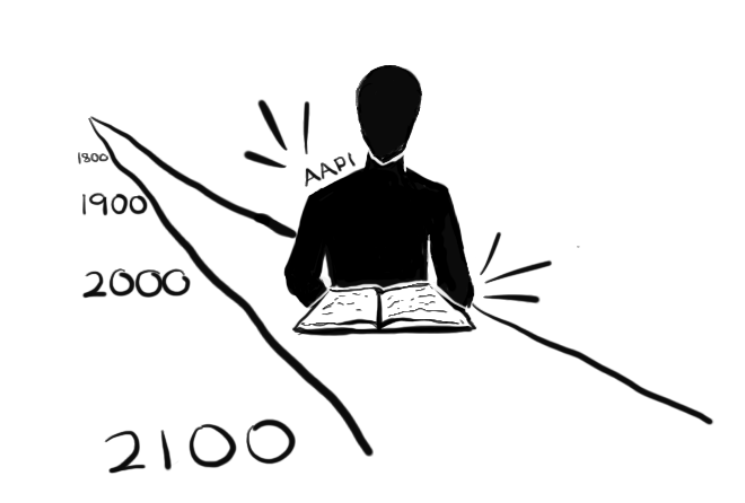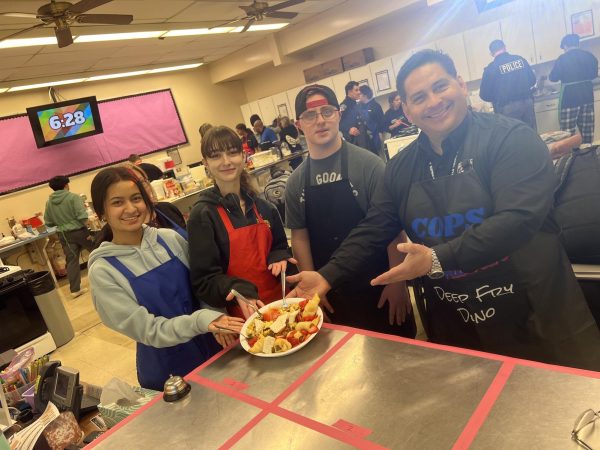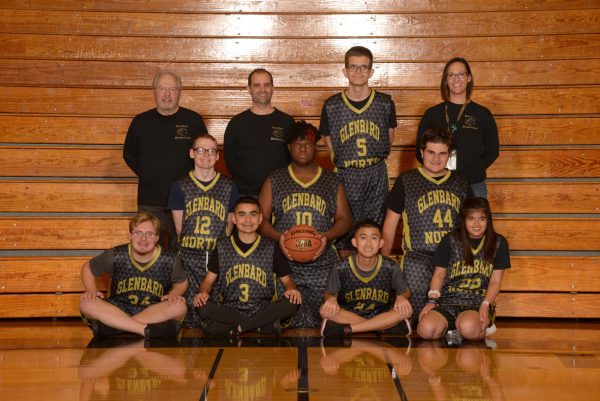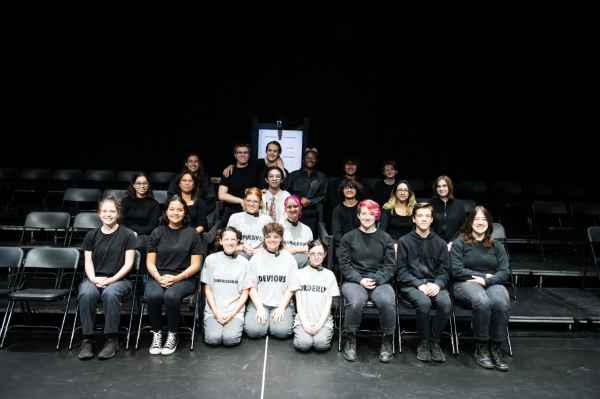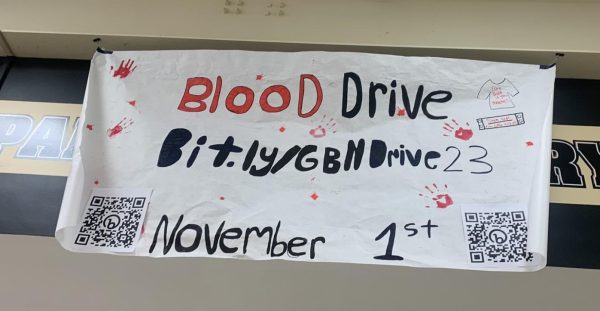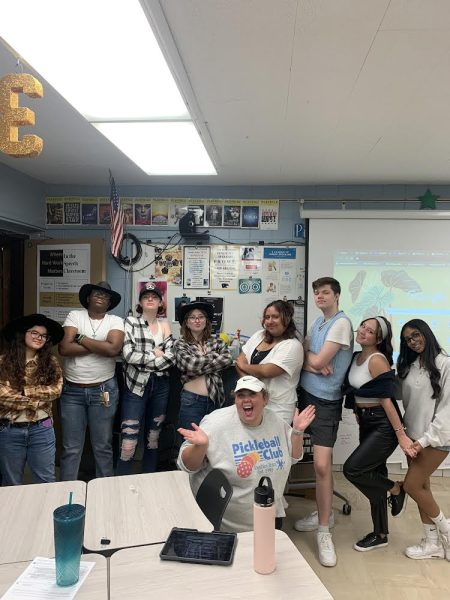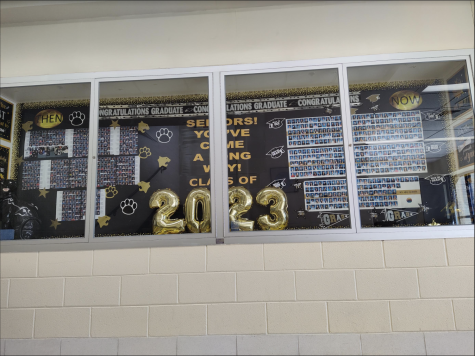AAPI Read-In: The Past, Present, and Future of Asian Americans
Glenbard District 87 had their second Asian American Pacific Islander Read-In November 18, with the theme: The Past, Present, and Future. These three segments focused not only on the experiences of Asians in Asia but those living in other countries. With stories and poems by esteemed authors read by Asian Americans today, the read-in focused on how the Asian community has come a long way, but still faces setbacks in the modern-day and age.
The Read-In was a collaborative effort between all the Glenbard schools’ Asian American Associations. The students and staff that participated showcased works of literature, written by authors such as Li Young Lee, Rupi Kaur, Dilruba Ahmed, Naomi Shihab Nye, that encapsulated themes of oppression, hope, resilience, and determination. Each of these themes was represented in the past, present, and future.
But why was this AAPI Read-In so important? With the increase of racial threats and violence towards the Asian community since the beginning of the COVID-19 pandemic, many Asian Americans have taken it upon themselves to make their voices heard. Throughout all four Glenbard schools, there are nine organizations and clubs dedicated to Asian Americans, each allowing for the diversity of Asia to be showcased. This is important for the Glenbard District as a little over 16% of the student population is Asian American. The AAPI Read-In was an opportunity for all the schools to come together and make the difficulties of being Asian American known in today’s society.
Glenbard North student Bernadette (Bernie) Vibora, ’21, who is an Asian American Association (Triple-A) member, responded to the question “What does being Asian mean to you?” Vibora stated, “Being Asian to me means a lot more than just being Asian. Being Asian gives me a purpose to be me. It means that I can follow my cultural traditions and express my pride just for being Asian.”
Glenbard North student Om Patel, ’21, who is an Indian Student Association (ISA) member, responded to the same question with, “Honestly, being Asian means embracing all aspects of my culture. Whether it’s the food, music, or dancing, I love everything about it. Being Asian means knowing where you come from and how your experiences have shaped who you are as a person. As a south Asian, I know other south Asians who struggle with understanding where they come from. Some of them even have a hard time speaking their own language which makes it difficult for them to communicate with elders. As a result, there’s a great disconnect between our generation and the one above. Because of that, being Asian also means having a connection with your history.”
Glenbard West student Anya Marie Delamerced, ’22, who is an Asian Club member, responded with, “Being Asian to me means being unique and resilient.”
When prompted with the question “How has growing up/living in the US helped/hindered you in accepting your cultural identity?” Delamerced replied, “I was lucky to grow up in a diverse environment, so I never felt uncomfortable with my identity, but after attending a majority white school, I learned to make my cultural identity my strength to overcome the obstacles that come with being Asian American.”
Vibora responded, “Growing up in the US hindered me from accepting my cultural identity. Living in a world where society views the superior color as white, I struggled with accepting myself as an Asian for a long time. However, society is more accepting and I found out that I was not the only one struggling with this. I accepted who I am through learning self-love. This is a big reason why the AAPI Read-In is such a big deal, showing people that they aren’t alone and that their Asian culture is valid and beautiful.”
Patel responded, “As an Asian American growing up in the US, I felt like I was in a battle, struggling to identify with a certain aspect of my identity. I didn’t feel like I was “Indian enough” because I wasn’t good at speaking Gujarati. I also didn’t feel like I identified with being fully American because a lot of the food I ate and music I listened to was not American. Now, I’ve learned to embrace both sides. Growing up in the US, I made friends with many Indian Americans like me and learned that I wasn’t alone. This helped me understand that I wasn’t alone and that I didn’t have to be ashamed of my food or music and that it was okay if I wasn’t 100% perfect at speaking Gujarati.”
When asked, “What is your hope for Asian Americans in the future of this country?” Patel stated, “I hope that someday we are able to live in a world where Asian Americans aren’t constantly stereotyped or have to face racist comments. In the past year, we have seen a lot of videos and photos of Asian Americans being brutally attacked and called racial slurs. Especially when COVID was at its peak I have never seen so many people call Asians a virus or refer to the Coronavirus as the “Chinese Virus.” It hurt to see Asian Americans face these hate crimes and it made me want to hope for a better future. I want a better future for the generations to come and that starts with making change today.”
Delamerced voiced, “I hope that Asian Americans of the future can see their identity as a strength instead of a disadvantage. That we weren’t born unlucky, but with a unique set of skills.”
Vibora stated, “My hope for Asian Americans in the future is to stray away from toxic traditional traits, such as going into the medical field and instead of being allowed to pursue what they want to do in life.”
Despite the challenges Asian Americans face, students throughout the district are taking it upon themselves to showcase their opinions and present learning opportunities to others. The Read-In concluded with hope for a better future and possible events later this year, not just at Glenbard North, but throughout the Glenbard District.
Your donation will support the student journalists of Glenbard North High School. Your contribution will allow us to pay for training sessions and cover our annual website hosting costs.


